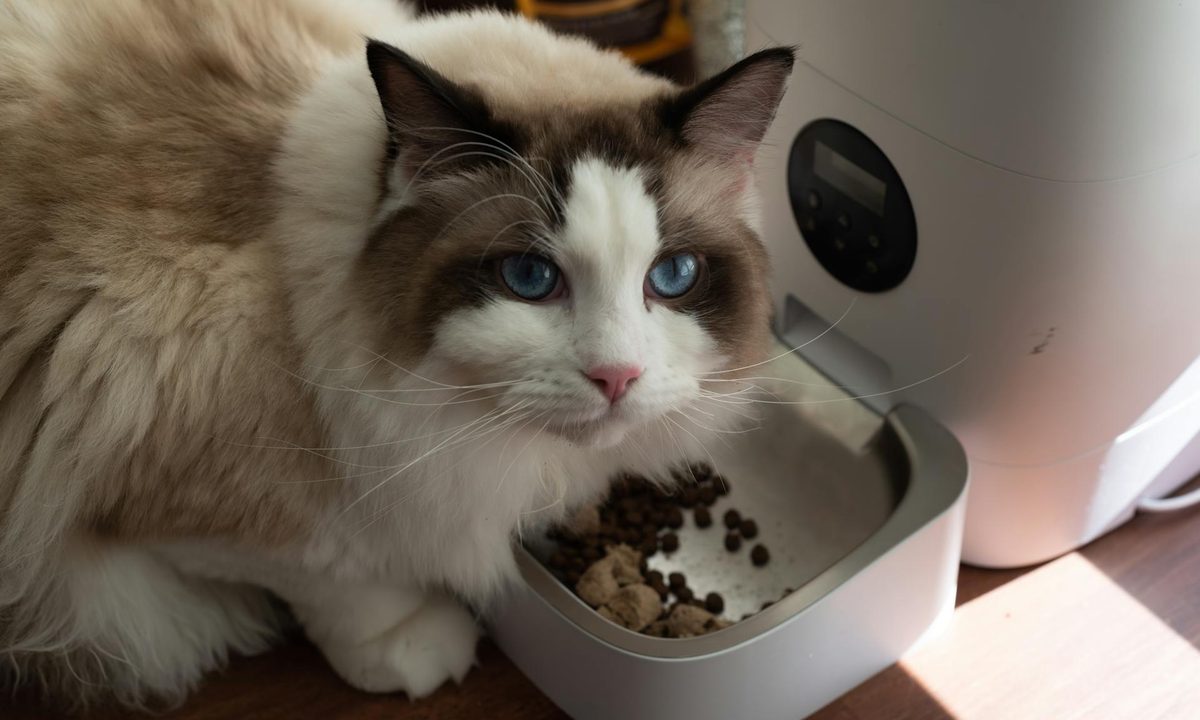You may have heard cats are carnivores (obligate carnivores, to be exact). Perhaps you’ve also heard that everything tastes better with bacon (a fact, and we’re not taking questions) and that turkey bacon is a healthier choice than regular for humans (requires nuance).
What about cats, though? Can cats eat turkey bacon? Perhaps more importantly, is turkey bacon safe or healthy for kitties? These questions are important ones. If you’re asking them, you likely love your cat. Perhaps you want to show that love by sharing your favorite breakfast dish or side, or maybe your pet is a rascal who batted turkey bacon off your plate and gobbled it up.
If your cat helped themselves to a bit of turkey bacon, rest easy: Some human foods are toxic to felines, but turkey bacon is not one of them. Still, just because cats “can” eat turkey bacon doesn’t mean they “should.” Here’s what to know before giving your cat turkey bacon.
Can cats eat turkey bacon?
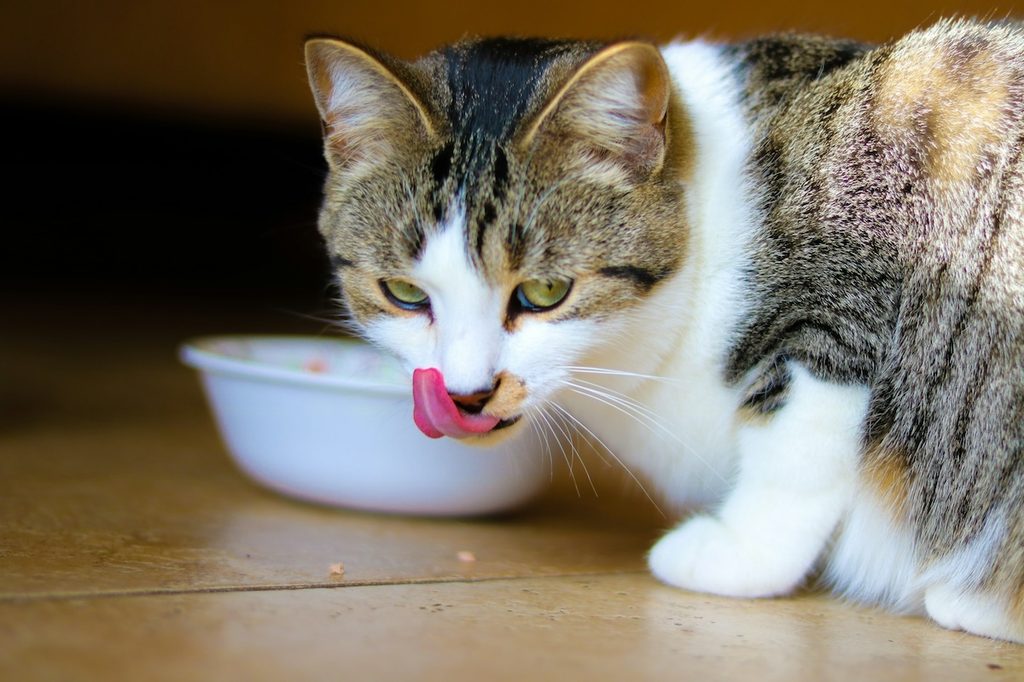
Technically, cats can have turkey bacon. The food — a mix of light and dark turkey meats — is not poisonous. Consuming a little turkey bacon here and there likely won’t cause a fatal illness or condition. However, this food isn’t the best choice of treats for a cat, and turkey bacon certainly doesn’t replace a cat’s daily diet of food designed specifically for their needs.
Is turkey bacon healthy for cats?
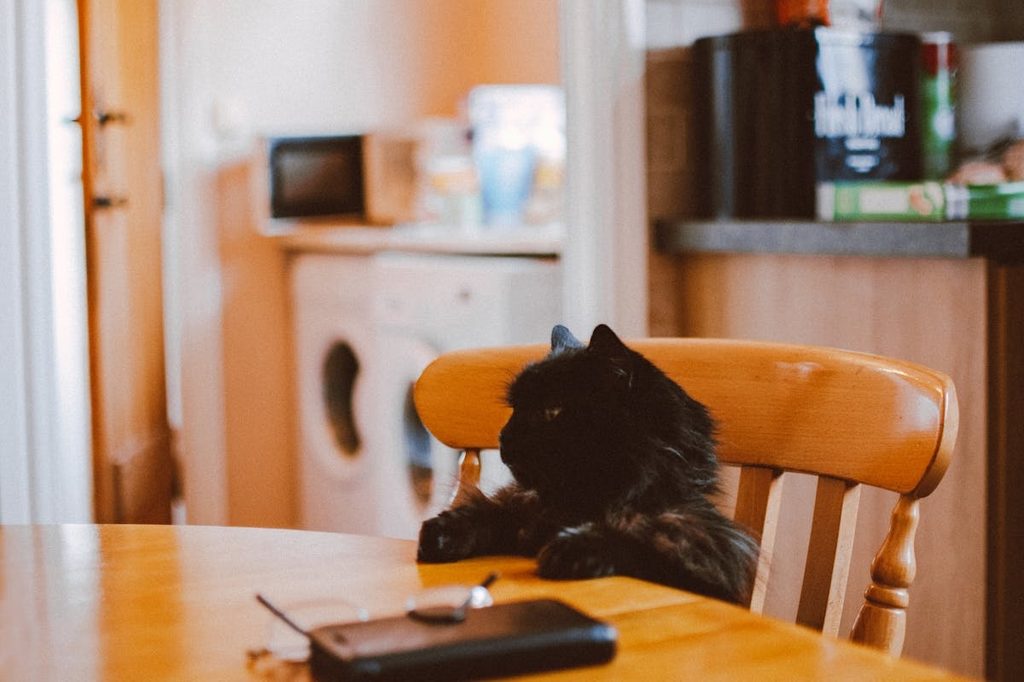
At the risk of sounding like killjoys: No. Turkey bacon does not have health benefits for cats. Yes, turkey bacon is a meat. As obligate carnivores, cats require animal protein to survive. However, kitties get this protein from their standard food. Turkey bacon has too many downsides to outweigh this upside.
There’s a food fight in human health circles about whether turkey bacon is “healthier” than regular bacon. We’re here for the cats, though. Generally, turkey bacon has fewer calories and grams of fat than regular bacon. However, the meat is still processed, high in calories and fat (especially for a cat), and has a ton of sodium.
Sodium is an essential nutrient for cats. However, healthy adult cats only need around 740 mg of sodium daily. One slab of turkey bacon has almost 20% of their daily recommended intake — way too much.
All the excess fat and sodium and calories put a cat at risk for chronic conditions, including:
- High blood pressure
- Obesity
- Heart disease
- Joint issues
- Diabetes
- Cancer
- Kidney disease
You’re better off opting for other, lower-calorie human foods as cat treats, like small pieces of cooked salmon and canned tuna (get your vet’s OK first). Boneless, skinless turkey breast in small, well-cut portions is also a fine choice (Thanksgiving drama averted — at least on the cat front).
Is turkey bacon safe for cats?
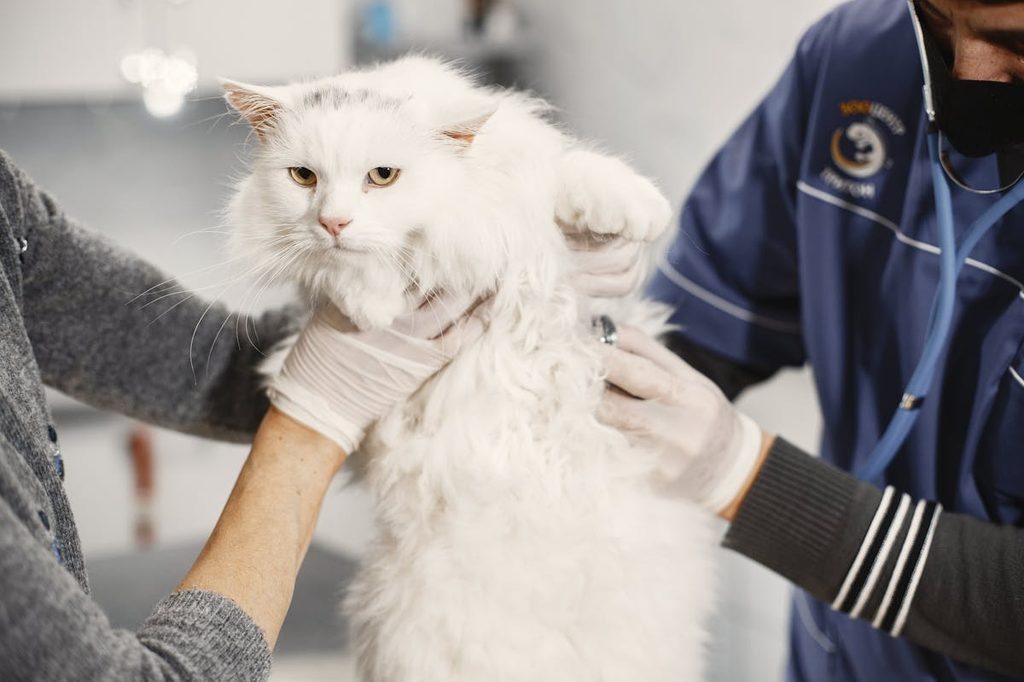
Turkey bacon is not toxic to cats if consumed in small pieces and in moderation. However, turkey bacon poses numerous health risks to cats if consumed frequently. Eating too much turkey bacon at once might also require a call to the vet (or even poison control). Because of the excessive salt content, cats that eat large portions of turkey bacon are at risk for sodium ion poisoning. This condition is serious and potentially a life-threatening one, so you’ll want to seek care for your pet as soon as possible. Symptoms of sodium ion poisoning include:
- Excessive thirst
- Dehydration
- Changes in urinary habits (peeing more or less often)
- Diarrhea
- Seizures tremors
- Lethargy
- Incoordination
- Coma
The Pet Poison Hotline at (855) 764-7661 can walk you through the next steps if you’re concerned about your cat, including helping you find the nearest emergency facility. Vets treat sodium ion poisoning with:
- IV fluids (counteracts the sodium in the cat’s body)
- Medications (can help with seizures)
- Electrolyte replacement therapy
- Stomach pumping
Bottom line
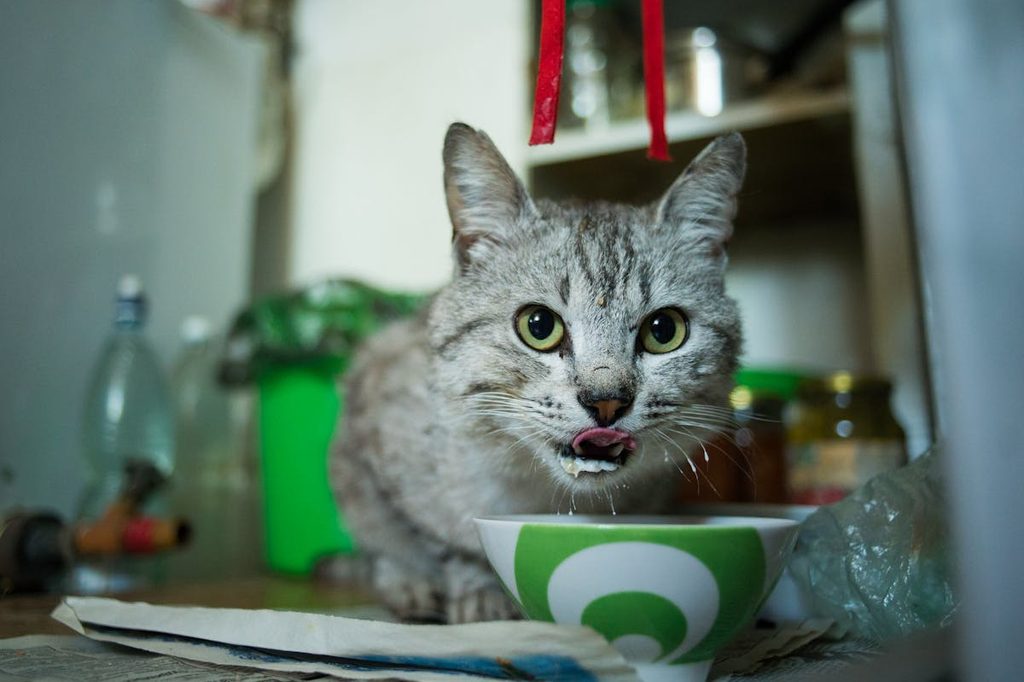
Cats may show interest in turkey bacon, and you may share that love. Can cats eat turkey bacon? The answer is nuanced. However, it’s best if you avoid sharing turkey bacon with cats. While it has fewer calories and grams of fat than its standard counterpart, turkey bacon is still high in both.
The food is also a source of excess sodium. Eating too many high-sodium foods regularly puts a cat at risk for chronic conditions, including heart and kidney disease. Consuming too much salt at once can also cause immediate concern, notably sodium ion poisoning, which is potentially life threatening. Call poison control if you suspect your cat had too much turkey bacon or head to the nearest emergency vet. Treatments are available. The quicker your cat receives care, the better.
